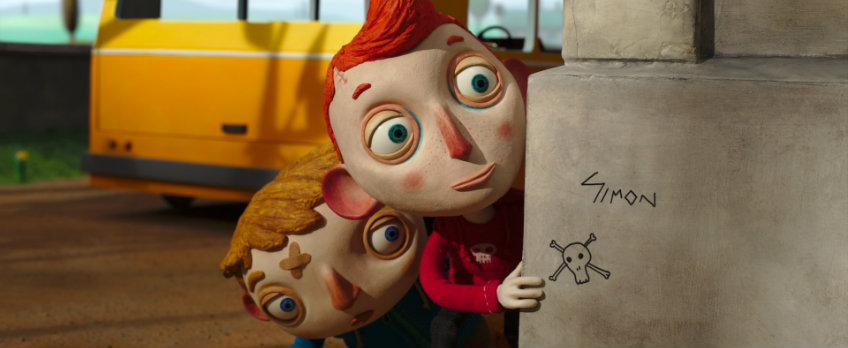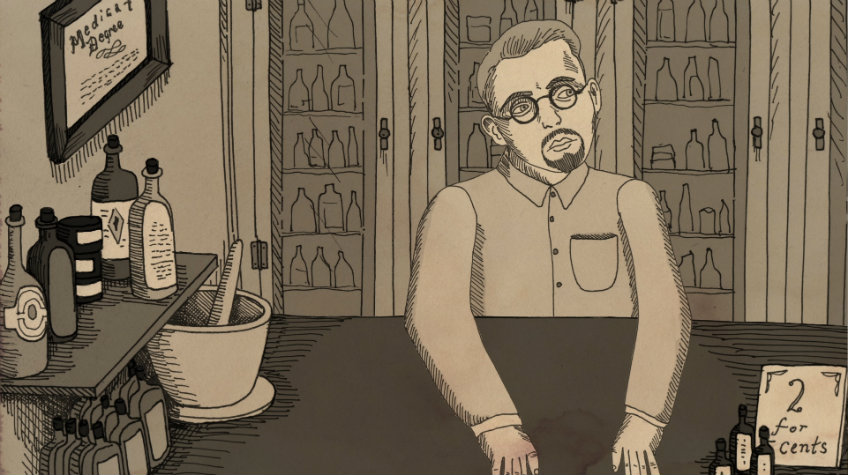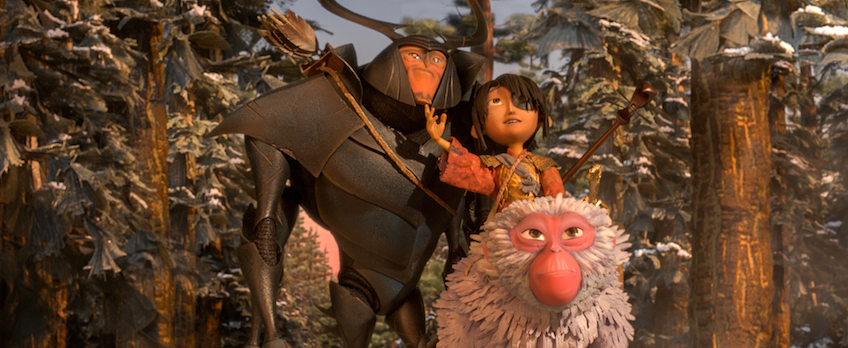The Story of Adult Animation

Dominic Barlow, Critics Campus 2016
With a dash of testiness in his voice, Brad Bird says on the DVD commentary of his 2005 Pixar film The Incredibles: “Animation is not a genre … a western is a genre. Animation is an art form, and it can do any genre. Next time I hear ‘Eww, what’s it like working in the animation genre?’, I’m gonna punch that person.”
Animation – be it hand-drawn, computer-generated, clay-mated, or all of the above – is a tool to craft an aesthetic, not a strict barometer of what themes and characters are on offer. And yet, nearly 21 years after Pixar turned the industry on its head with Toy Story, the slick, box-ticking, four-quadrant family adventure is still the norm. The great irony is that Bird’s home studio has birthed the merchandised monster that torments him.
But what about animated films with different goals; ones where characters don’t have to double as mascots at Thanksgiving parades? These have existed as long as the medium itself, and Melbourne International Film Festival has done its part to continue their story. The stop-frame characters of fantasy adventure Kubo and the Two Strings might carry four-quadrant appeal with its cast of celebrities, including Matthew McConaughey and Charlize Theron, but their designs are inspired by creatures of Japanese legend. Swiss film My Life as a Courgette needs no such star wattage, and uses a similar visual technique to offer an unflinching look at life in an orphanage. Penny Lane brings the documentary form to animation with Nuts!, which traces the life of notorious American huckster John Brinkley. And with The Red Turtle, Studio Ghibli creates a wordless fable about a grown man living out his destiny on a tropical island.

These features are uniquely geared towards adult experiences, and the clear signpost out of animation’s genre rut. Adult animation has a chequered history as compelling as that of any major studio, and the first feature film in that lineage remains the most infamous. Fritz the Cat (1972) is director Ralph Bakshi’s sketchy, visceral send-up of 1960s counter-culture (adapted from a comic strip by Robert Crumb). Fritz, a college dropout and raging narcissist, scours the scuzziest corners of New York for higher states of being, and after several drug trips, sex parties and delusional attempts at a revolution, he comes up hilariously empty. The film was pornographic and proud of it – the poster screams “We’re not rated X for nothin’, baby!”
From taboo-breaking to form-expanding, the late Japanese maestro Satoshi Kon gave us Paprika in 2006, a psychological thriller where a dream scientist employs a peppy alter ego to dive into the headspace of an elusive criminal. It beat Inception to the dream-sting punch by a few years with a parade of indelible surrealism – a troupe of frogs, dolls and sentient kitchen appliances can be seen marching through several scenes. Moreover, all the main characters are grown men and women, dealing with pain in their own ways – some create protective layers, others hide it deep in the patterns of their dreams, while others consume the dreamscapes of the populace as a plot to rule the universe. All of it is rendered in two-dimensional animation that is both indelible and inimitable – a once-planned live-action remake by Wolfgang Petersen boggles the mind for all the wrong reasons.
At this point, adult animation had found loftier concerns than pissing off would-be hippies, though Paprika’s acid trip wasn’t the only way there. In the late noughties, two works scoured the regrets and memories of their makers. Marjane Satrapi’s 2007 film Persepolis, in which Satrapi re-tells her upbringing in the Iranian Revolution and details her escape to a new life in Belgium. With its clean lines and monochromatic shading, even the silhouettes of protesters and families on the run are enough to hurtle us in the core of her personal anxieties. Meanwhile, Ari Folman’s 2008 film Waltz With Bashir fuses a documentary-type reality with violent hallucinations of conflicts that Folman can’t remember fighting in. He and Satrapi are inviting people to experience their adult neuroses, but rather than the lurid theme parks of Paprika, these are memories and visions that are sharply conceived and rooted in the real world.

Yet not all animation is about simulating a personal point of view. A Scanner Darkly, a 2006 sci-fi/slacker hybrid from indie darling Richard Linklater, employs a technique he helped to develop called Rotoscoping, in which live footage is digitally manipulated and coloured. Every frame is used to place us at a CCTV-like remove from a gang of rambling, paranoid drug addicts. This honours the themes of the Philip K. Dick story on which A Scanner Darkly is based, but with wafting textures and tones that give it the energy as abstract expression. Placing it next to Bashir, it shows how varied even ‘realistic’ two-dimensional animation can be. Both strive for the bold expression of animation and the realism of live-action film. A Scanner Darkly is a much seedier and funnier experience, but just as tragic in its own way.
Grim vibes and realism aren’t even a necessity, either. Just ask Nina Paley, who in 2007 took to crowdfunding in a pre-Kickstarter world for Sita Sings the Blues. It might have had another ostentatious tagline – “the greatest break-up story ever told” – but the film has invention to spare. How does a post-breakup therapy session via the Ramyana myth, two-dimensional animation, chatty shadow puppets, and the music of Annette Hanshaw sound? Niche, perhaps, but the film is legally free to watch, and Paley’s approach to her personal pain is just as edifying nearly ten years on.
And where might the next chapter of the story lie? It continues unabated in the mainstream with Sausage Party, a star-studded comedy that’s bound to make Bakshi proud. When the hunt begins for animated films that don’t soften real adult concerns, it can end in a great many ways: the rich fantasy of Kubo, the urban hardship of Courgette, the myth of The Red Turtle and the myth-making of Nuts! In the story of adult animation, the variety of films like these is writing an exciting new chapter.
